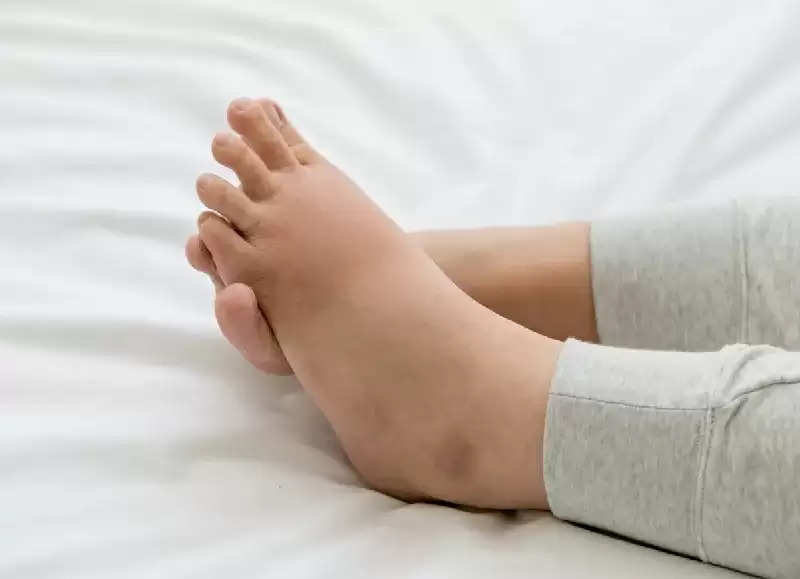Swollen Feet During Pregnancy: Why do feet swell during pregnancy? Is this normal or should it be taken seriously?

Swollen Feet During Pregnancy: Women go through many problems during pregnancy. There are many changes related to pregnancy in different parts of their body, one of these changes is swelling of the feet. Most of the women who become mothers experience the problem of swelling in the feet. Although this problem is common, sometimes it can create big problems. This is the reason why too much swelling in the feet should not be taken lightly.

Gynecologist Dr Amina Khalid shared a post on Instagram regarding this problem seen in women during pregnancy and said that it is normal to have swollen feet during pregnancy. However, it can also indicate many internal problems in the body. If the pattern of swelling is different and is also visible on the rest of the body then it should never be ignored.
Why do feet swell during pregnancy?
1. Due to hormonal changes in pregnancy, women's feet swell, as the body starts retaining extra water and fluid to meet the needs of the baby.
2. As the pregnancy progresses and the baby starts growing, the weight of the uterus and the baby starts putting pressure on the veins of the legs. Because of this, the capacity of the veins to return the blood to the heart decreases. Due to slow blood flow, pressure builds up inside the vessels, due to which water starts leaking from the veins. This causes swelling in the feet and ankles.
How to recognize normal swelling?
1. The swelling should usually be confined to the ankles and feet.
2. There is no swelling in the feet in the morning.
3. The swelling increases throughout the day and gets worse in the evening or at night due to the pressure created by the baby's weight.
4. Resting and raising the legs for some time can reduce swelling.
When not to ignore?
1. Swelling in the morning and throughout the day. Even taking rest does not bring relief.
2. Swelling in only one leg or sudden increase in swelling
3. Dizziness in the eyes or feeling of flashing lights in the eyes
4. Dizziness
5. Breathlessness
6. Pain in the lower chest
7. Excessive headache
8. Decreased urination
9. Vomiting

How to prevent the problem of swollen feet?
1. Avoid adding extra salt to your food.
2. Include potassium-rich foods like bananas, spinach, potatoes, beans, and fruits like pomegranates and oranges in your diet.
3. Minimize the intake of caffeine. The problem of excessive urination arises due to the consumption of caffeine.
4. Whenever you lie down, try to raise your legs and keep a pillow. Also, get eight hours of sleep at night.
5. Avoid wearing tight leggings, jeans or other clothes. Wear comfortable shoes too.
6. If your doctor allows, then walking for 10 minutes after meals will be good for your health.
If you do not get relief even with these measures and the swelling is increasing, then contact your doctor without delay.
 (1).png)